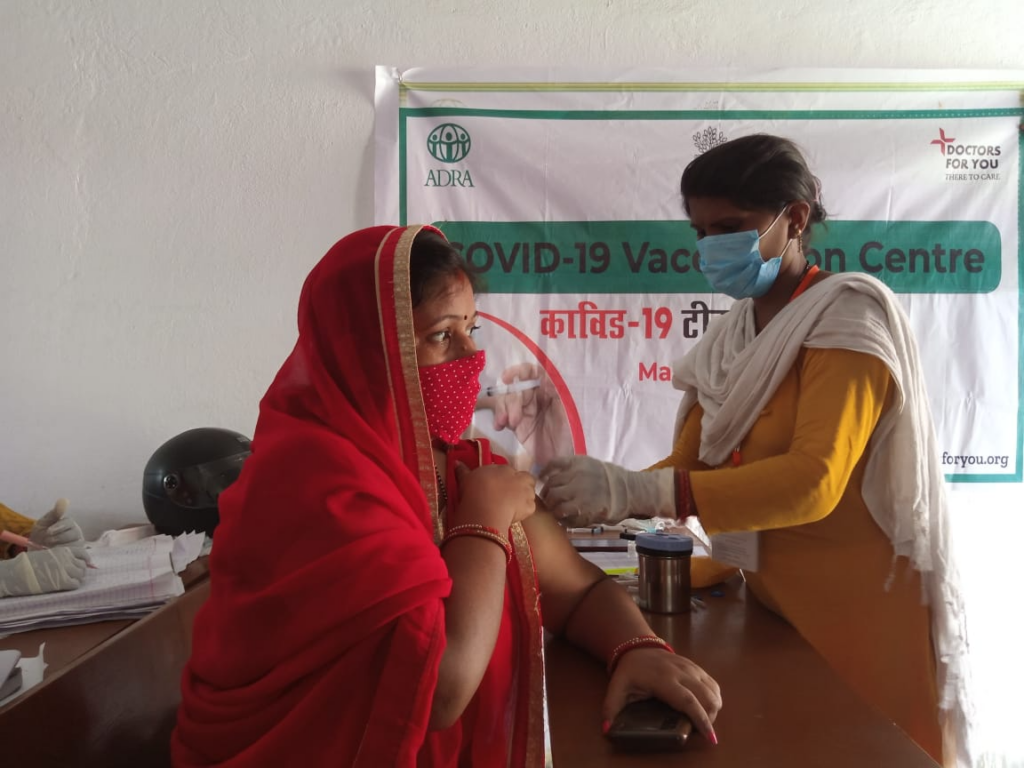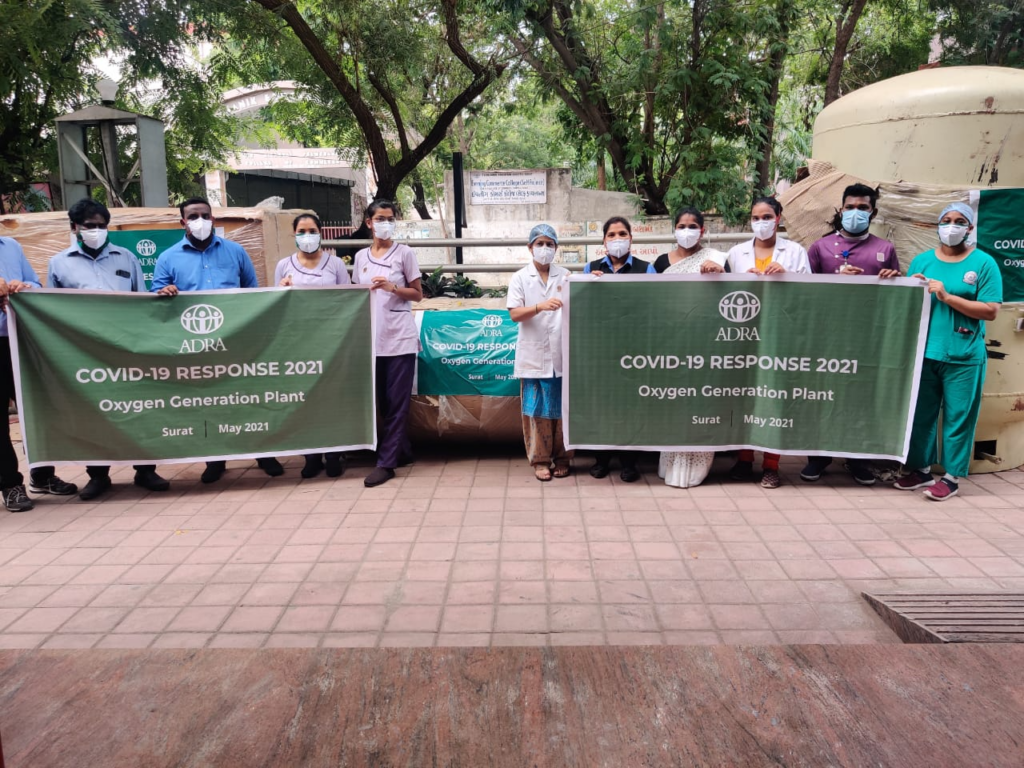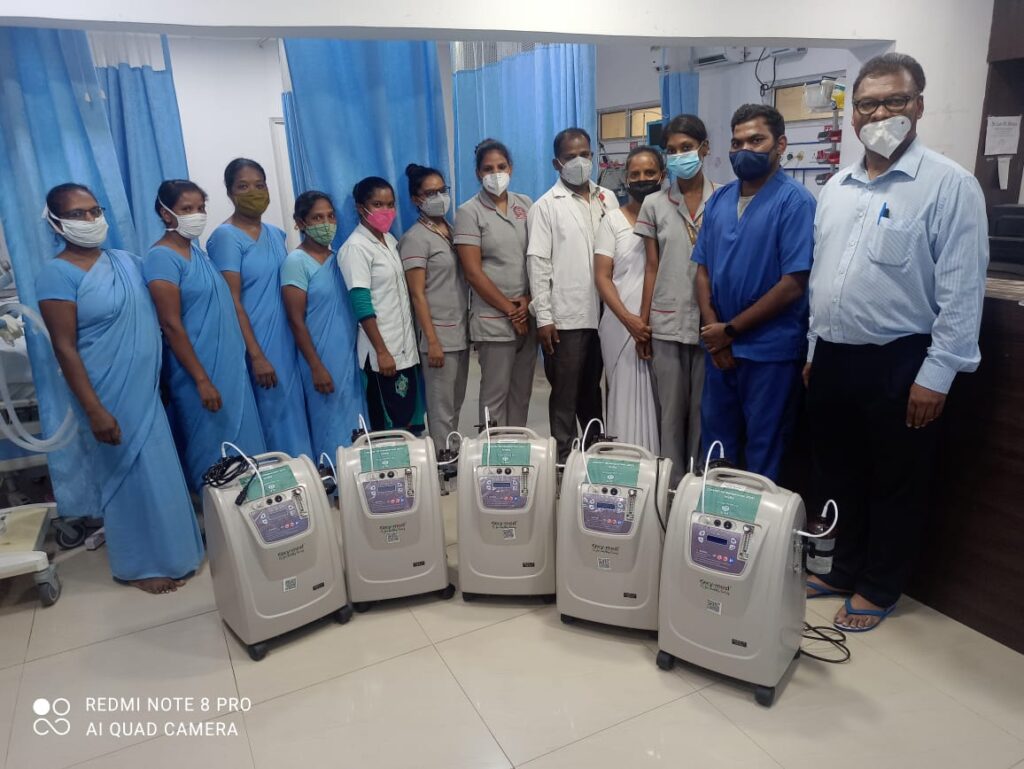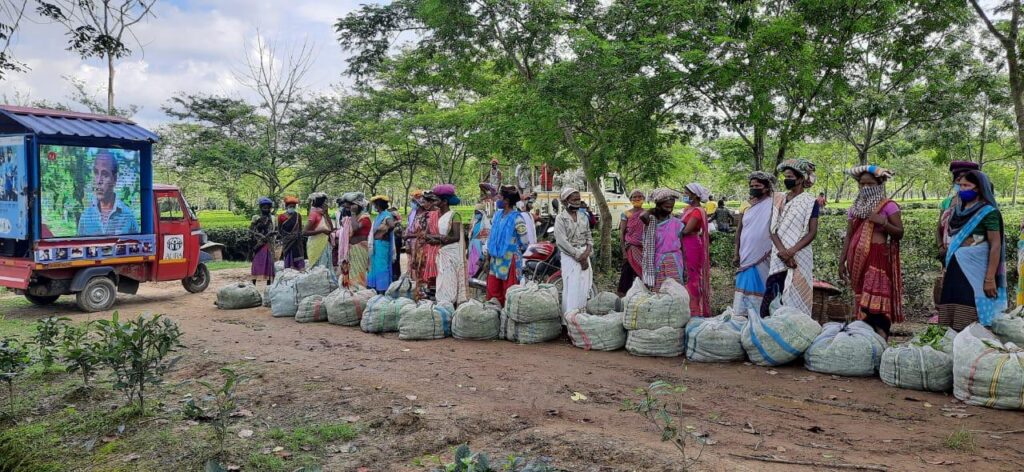It’s an uneventful Tuesday afternoon here in India, and in the national capital city of New Delhi, people are going about business as usual. Many workplaces and businesses are operational, streets are jam-packed, eateries and malls are busy and the only reminder that the pandemic is not yet over is the face masks that people are still wearing. Tourists from all over the country are thronging the hill stations, as travel restrictions are lifted, to escape the hot city summers and visuals of hill stations, bustling with tourists – who are seen without masks and without any effort at maintaining social distance – are all over news channels and social media. Just a little over a month ago, these same digital platforms were flooded with harrowing visuals of people struggling to get hospital beds, medical equipment, and medicines. People were putting out appeals to get help for their loved ones.

In India, 30 million people have contracted the virus since the pandemic started in February 2020 (*as of July 13, 2021). The second wave of a more deadlier Delta Variant of the virus, which started in April 2021 and peaked in May, shook the entire country. During the peak, the nation was witnessing over 400,000 new cases every day – something that the country’s healthcare system was not ready for. After the first wave settled sometime in November or December 2020 and before the second wave began, people had just started to go back to normalcy, presuming that COVID-19 was almost gone. Lesser new cases were being reported each day and unfortunately, there was hardly any preparedness for another wave. When the second wave hit, the high number of cases of a new type of mutation of the virus overwhelmed the healthcare facilities. Hospitals were understaffed and under-equipped to deal with the sudden surge. Finding medicines, ambulances, oxygen cylinders and hospital beds had become a challenging task, especially in the bigger metro cities like Delhi and Mumbai. The entire fiasco led to a rise in the toll of avoidable deaths.
During 2020 the Adventist Development and Relief Agency (ADRA), had begun working on various programmes to help people manage the risks and dangers of COVID-19 from the onset of the pandemic. When the second wave hit, ADRA identified the need and decided to scale up its operations to meet the most urgent needs of the country and its people. The ADRA network across the globe joined hands to help India’s response to the pandemic. ADRA Hong Kong has been a valuable partner to provide the much-needed support to ADRA in India.
“The second wave came as a shock. Suddenly, people were running for beds. There were no beds, not only in our hospital but the entire country. There was a sudden shortage of oxygen. From 30-40 jumbo cylinders per day, the demand went up to 170 cylinders a day. There was a huge load on us. We could not function our ICU Ventilators on optimum capacity because of shortage of oxygen. There were a couple of times when because the cylinders took some time to reach us, we were really scared because the care of so many patients would be jeopardized. We have survived this far only by the grace of God. We perceive the need of an Oxygen Plant during this time,” said Dr Rupa Anna Abraham, Chief Medical Officer, Pune Adventist Hospital.
The relief support and effort is helping ADRA expand its operations to Adventist hospitals in India in order to build medical capabilities and improve critical coronavirus patient care services. The Adventist Hospitals are charitable institutes that treat people from all faiths and backgrounds and provide subsidized or free treatment to those living in poverty.
Ravi Gandhi, a patient affected by COVID-19 and being treated at the METAS Adventist Hospital, Surat was grateful to the institute for his treatment. ‘I was affected by COVID, a severe lung infection, and was being treated in one of the private hospitals of Surat. I was hospitalized for almost 20 days in that hospital, but my oxygen level was not being maintained and regularly monitored by that particular hospital. So, I immediately shifted to METAS. Here, I recovered within 5 to 6 days and now I am able to breathe without oxygen also. The timely support given by this particular hospital is very good. The infrastructure here is the best of its quality; the staff is very supportive and is taking care of the patients with utmost priority. They are giving all the medicines, injections on time. I am very satisfied and I will be discharged within the next two-three days,” he said.
The COVID-19 outbreak has pushed the health systems to a breaking point. Hospitals are operating near or beyond capacity. Many people have been struggling and dying due to lack of medical oxygen. We are grateful to be able to provide a new oxygen generation plant which will now assist in saving more lives. This plant will ensure that the hospitals will depend much less on outside suppliers.” says Weston Davis, ADRA Country Director in India. “Please continue to pray and help the people in this region. ADRA will keep on working with the Adventist World Church, the Adventist health care systems, and other trusted partners to expand and mobilize humanitarian relief to combat the urgent situation.”
ADRA’s humanitarian operation is enhancing the oxygen production at medical facilities by installing Oxygen Generation Plants (OGPs) and delivering oxygen concentrators to produce a constant supply of oxygen-rich gas for treating COVID-19 patients.
With support from ADRA Hong Kong and other ADRA offices within the global network, ADRA India has already been able to procure a life-saving Oxygen Generation Plant (OGP) from Milan, Italy and set it up at the METAS Adventist Hospital in Surat, Gujarat. More OGPs are being set-up in two Adventist Hospitals in different parts of the country.

“When the entire country was battling with shortage of oxygen supply, we at METAS Adventist Hospital also had these difficulties. We really want to thank ADRA for understanding our need of the hour and sending this Oxygen Plant at a very right time. We want to thank ADRA for this wonderful gift for our hospital. May ADRA be blessed,” said Sr Ruth Mohan, Quality Manager at the METAS Adventist Hospital on receiving the Oxygen Generation Plant.
ADRA is also supplying and transporting ventilators, medical equipment and monitors to key hospitals. They are mobilizing essential preventive gear for frontline health care workers, including PPEs such as N95 masks, face shields, surgical gowns, nitrile gloves, goggles, disposable bed sheets and caps, and hand sanitizers.

ADRA is the global humanitarian arm of the Seventh-day Adventist Church, part of the 20-million strong Adventist community with the world’s largest integrated healthcare network. This healthcare network, including Adventist Health International (AHI), has been actively responding to this crisis.
In India, ADRA is working with local health clinics to increase vaccine access and reduce COVID-19 hesitancy to prevent the spread of the deadly virus. The team on the ground is teaming up with government and doctors’ organizations to provide additional medical staff, doctors, nurses, and data entry operators at COVID-19 vaccination centers in various locations in India.

“ADRA India is coordinating with the state government and network of Civil Society Organizations to respond to this pandemic by providing lifesaving equipment like Oxygen generation plants and PPE kits to health care facilities and front-line workers who have been tirelessly working,” said Rajan J Pydimalla, Programme Director, ADRA India.
ADRA India has been involved in helping the most marginalized and vulnerable people since March 2020 by providing emergent needs from food, livelihood and medical aid to COVID-19 vaccination support. With the situation at hand, it is pivotal for the organization to cater to the new needs and to support the government in its fight against the virus.
In the next phase of its response, ADRA is preparing to mitigate stigmas surrounding the COVID-19 vaccination. Vaccine hesitancy is becoming a challenge against optimum coverage of the vaccine, a much-needed step to end the pandemic. ADRA will undertake Risk Communication and Community Engagement – a technique to spread awareness about the virus and the importance of the vaccination. This will be demonstrated in rural and hard-to-reach areas of the North-Eastern state of Assam by using entertainment as a tool. Messages are delivered in fun ways through poems, songs, street plays infotainment vans help build vaccine confidence among the community.
“ADRA India’s field teams have been facing challenges of vaccine hesitancy since the Polio Programme, when many families closed their doors and said “No” to the Polio drive. Similar trends are seen in the COVID-19 Vaccination Programme too. The solution to get rid of stigma and misinformation is to have a two-way communication strategy and by listening to the community’s apprehensions, understanding the reasons of hesitancy (which may vary from place to place), and involving influencers and community people to promote the vaccination,” said Shilpi Das, Program Manager, Health, at ADRA India.
As crucial medical supplies continue to reach hospitals across the country, hospitals are sending their gratitude and blessings to ADRA and its supporters for their humanitarian support during these hard times.
On the bright side, the second wave has subsided, and hospitals are not facing the dire shortages of medical equipment as there are lesser people in need. Unfortunately, only 5.6 per cent of India’s population is fully vaccinated and 23 percent have received the first dose. Experts are predicting a potential third wave somewhere between August and October. ADRA is ensuring that its response is long-term and will help the citizens be protected and will continue to support the healthcare facilities until the pandemic ends, and beyond.
“We need to be cognizant of the fact that there is a third wave coming. For that we need to be adequately prepared and not be caught off-guard. Thanks to the generous donation of ADRA and all those people who have got involved in trying to see that they are able to provide this (medical equipment) in a time of need,” said Dr Raj Kumar, Medical Director, Seventh Day Adventist Medical Centre, Bangalore.
Written By: Trisha Mahajan, ADRA India
Photo: © 2021 ADRA India
Visit the ADRA India website to learn more



